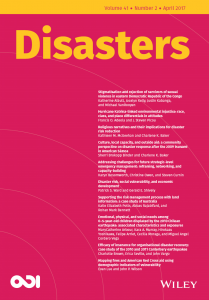Constructing Prenatal Testing
 by theoryforthemasses
by theoryforthemasses
A recent New York Times article highlights the current debate surrounding the prenatal testing of women for thyroid problems. Doctors suggest that many women conflate the effects of pregnancy with symptoms of unchecked hypo- or hyperthyroidism. They explain that thyroid problems can lead to miscarriage, preterm delivery, and pre-eclampsia, and even have long-term negative effects on their children’s intelligence. While “high risk” women are regularly screened for thyroid problems, some medical professionals are now advocating for widespread prenatal testing in the hopes of identifying and treating women with the mild, and more common, subclinical hypothyroidism.
In his book, Backdoor to Eugenics, sociologist Troy Duster discusses prenatal testing and other forms of genetic screening. He suggests that screens may open the door to the biomedical domination of particular populations, and that the taken-for-grantedness of prenatal screens overshadows the critical need for debate regarding the larger social consequences of their use. He tacitly argues that individuals should be more critical consumers of “scientific” knowledge, especially since research programs and policies regarding such screens are imbued with political and bureaucratic concerns. In discussing the assessment that a child’s IQ is affected by its mother’s hypothyroidism, one doctor says, “Once you believe that, it would seem to me illogical not to be sure that all women have normal thyroid function during pregnancy.” Many people would probably agree after reading this article, but the more interesting question is why. Indeed, that question speaks to the ways in which we construct and consume knowledge. It is a process that is inseparable from politics and the hegemony of “scientific” discourse, and that may prop open the backdoor Duster envisions.





1728-4457/asset/PopulationCouncilLogo.jpg?v=1&s=03074651676b98d6b9d0ef1234bd48fe7ff937c3)
Interesting post on Duster’s ideas. Looking at this issue internationally, ultrasounds producing knowledge of a baby’s sex are leading to demographic shifts in India (a legal remedy is in place, but apparently it is easy to bypass).
Keri